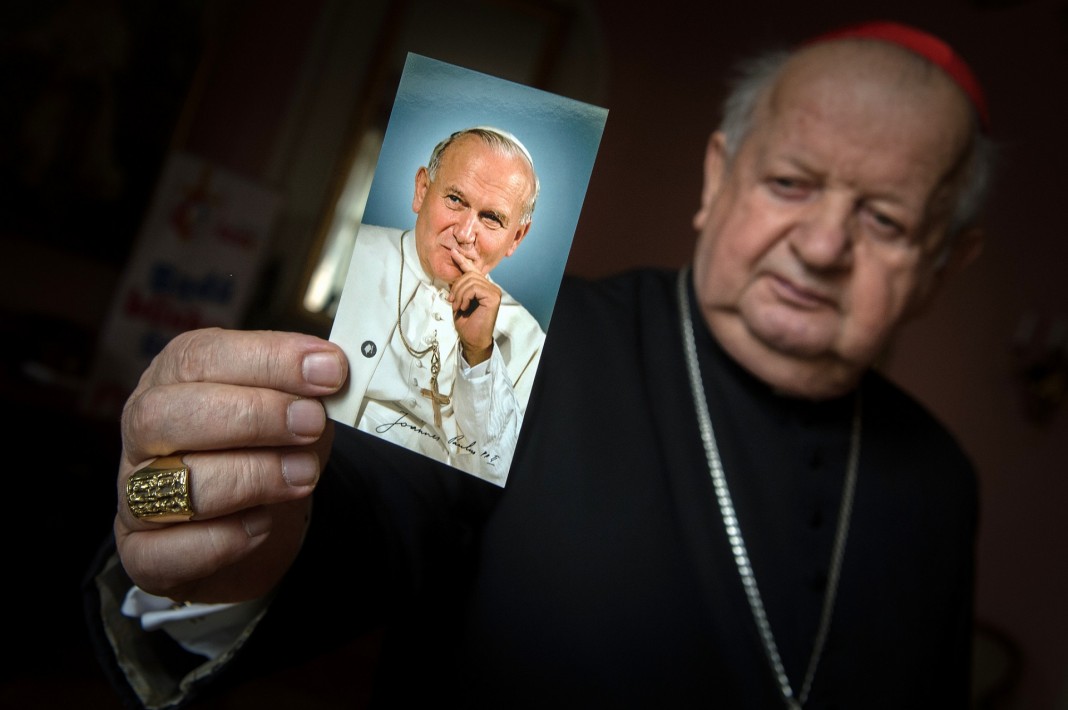Cardinal Dziwisz: The Lesson of John Paul II passing can be a source of consolation and solace for those who suffer


Fot. BP KEP
The suffering of St. John Paul II has helped many sick and dying people to endure ailments of the body and spirit – says the former papal secretary, Cardinal Stanisław Dziwisz. As he notes, the 16th anniversary of the death of St. John Paul II coincides with Good Friday, experienced in the time of a pandemic.
The retired Metropolitan of Krakow told PAP that despite the passage of time, the memory of John Paul II’s departure is still alive. “It was a humanly sad and painful time, but at the same time filled with some light” – noted Cardinal Dziwisz, adding that right after the Pope’s death, The “Eternal Rest” was not said, but rather the “Te Deum” was sung, thanking God for the life of the Holy Father.
The former papal secretary assessed that the events from 16 years ago were, on the part of John Paul II, a lesson of limitless trust in God’s mercy, of humble acceptance of the mystery of dying, but also a lesson of solidarity and community.
Card. Stanisław Dziwisz emphasized in an interview with PAP that the Pope accepted suffering “with humility and even with a certain serenity.” “His humility was also manifested in the fact that he did not avoid cameras, meetings with people, although he knew that they could see his weakness and even his physical helplessness. It was courageous – to show his suffering to the world. I think that it helped many sick and people dying suffering from ailments of body and spirit “- explained the retired Archbishop of Krakow. As he added, it did not mean, however, that the Holy Father was dazzling with suffering, but that he accepted help with simplicity and showed sincere human gratitude.
In the opinion of Card. Dziwisz the weaving Good Friday and the anniversary of the death of St. John Paul II can be read symbolically, especially in the context of a pandemic. “The lesson that John Paul II gave to the world when he was leaving for his Father’s house can be a source of consolation and solace for those who despair after the death of their loved ones, and also for those who fear for their health and safety,” said the former papal secretary. In his opinion, the events of March and April 2005 were a time of interpersonal solidarity.
The cardinal also spoke about the great importance of the stations of the Cross for the Holy Father. As emphasized by St. John Paul II was a man of the Cross, carrying it to the end. “I was a daily witness to this Way of the Cross, his service, his bravery, his total entrustment to Jesus and His Mother,” added the retired Archbishop of Krakow.
Card. Stanisław Dziwisz emphasized that the pandemic reminds people that they are not immortal, and that God can call us to Himself at any moment. As he said, life is worth living to the very end, and the process of dying related to suffering is not less valuable in God’s eyes than the time of living with full strength. Former secretary of St. John Paul II also called for not postponing reconciliation with God and others. “For a meeting with the merciful Lord one has to be prepared at any time. This was also made clear to us by the pandemic, because many not only did not manage to say goodbye to their loved ones, but also left with the deadweight of hurt that they did not manage to forgive” – said the retired Bishop of Krakow.
St. John Paul II passed away on the eve of Divine Mercy Sunday, a feast that he had established. They are preceded by a novena to the Divine Mercy, which begins on Good Friday. The desire to establish the Feast of Mercy on the first Sunday after Easter was expressed by Jesus himself in the revelation of St. Faustina Kowalska. “On this day, the depths of My mercy are open, I pour out a whole sea of graces on souls who approach the source of My mercy, which soul will go to confession and Holy Communion will receive complete forgiveness of sins and punishments” – the words of Jesus that we read in the Diary of St. Faustina.



Dodaj komentarz